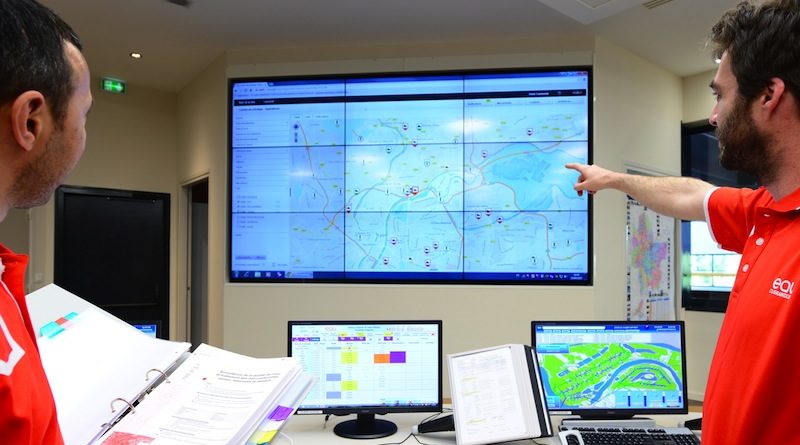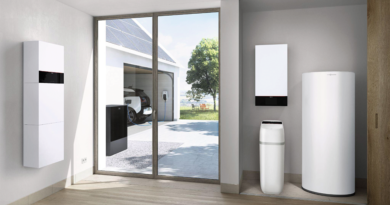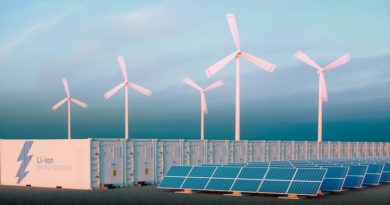
AI to resource the EU
The future pervasiveness of artificial intelligence (AI) makes no doubt. Recent technological developments have converged to lead to its take off and the trend is accelerating with: an increase in the quantity/availability of data (“big data”, enabled by the Internet of Things) ; sustained computing power improvements ; and better handling of complexity and adaptation thanks to progress in algorithms (“machine learning”).
AI’s impact on our society will be considerable. Our personal and professional environment will change swiftly and deeply, making the AI uptake an industrial and societal revolution.
There is no point in doing AI for…doing AI.
The stakes for Europe are to define an AI approach that would optimise the benefits of AI to the people and the environment. This way, Europe will become not only the leader but also the global benchmark in AI.
That is why Veolia welcomes the release of a European Commission strategy on AI and its reflexion on ethical guidelines.
Veolia was the first company to monitor and optimise water, energy and materials (waste) flows in real-time. Our Group is today a major IoT (Internet of Things) operator with more than 10 million connected devices around the world.
As 75% of our activities take place done within the EU, we support a European leadership based on three pillars: AI must contribute to the circular economy; AI must benefit people citizens, employees, etc. ; and AI must be understood as part of a broader digital ecosystem.
AI for the circular economy
Europe is already facing unprecedented challenges in areas such as quality and availability of water following droughts or heat waves, as well as waste management, air pollution and the energy transition.
AI developments must thus enable a systemic shifts that is beneficial to European citizens and the environment.
First of all, AI can reduce the costs of environmental services. Veolia for example uses it to detect leaks in water pipes and maintain networks preventively. Similarly, thanks to its Hubgrade “energy hypervision” centers, it reduces energy consumption for its municipal clients by 5 15%.
However AI computations on servers and information flow on the cloud may require a lot of energy. If not mitigated, AI can lead to accrued energy consumption and carbon emissions.
For this reason, Veolia takes great care in finding the right equation to reduce the carbon footprint with and for our clients, based on use cases.
The EU is already a trailblazer for the circular economy. Thanks to AI, it could consolidate its leadership in this field, an AI-circular economy win-win association.
“AI for sustainability” provides value for money. Every euro invested public or private delivers concrete benefits to our environment and citizens, solutions to problems that do exist and may worsen.
Thus, AI for the circular economy should be set as a priority in the EU budget and research programmes, starting with the 2021-2027 Multi-Annual Financial Framework and the associated Horizon Europe research and innovation programme.
AI for the people
Because AI will lead to socio-economic overhauls and paradigm shifts, Veolia believes that citizens and employees should be associated along the way.
There are concrete solutions to develop the inclusiveness potential AI.
In short, the proper approach is not ‘what people can do for AI’ but instead ‘what AI can do for the people’.
It starts with providing solutions that empower the city, based on a clear digital transformation vision. Abylon, a subsidiary of Veolia, help cities and citizens co-create and implement strategies on e.g. air and water quality, urban services transparency or social inclusion.
AI also provides tools to the direct benefit of these ‘smart citizens’. Our app ‘Urban Pulse’ brings to inhabitants and tourists real-time information on traffic, events in the neighbourhood, etc.
Like water or materials, information should not be lost. If everyone can contribute by providing or rectifying an update, everyone will benefit.
In addition, human-centered AI does not overlook employees. At Veolia, we deeply believe in the “symmetry of intentions”: digitally, as in other regards, employees have to be treated as well as clients.
This way, we make sure that AI becomes neither a sole marketing instrument, nor an instrument to cut the workforce. We bring value to our employees, who bring value to our customers.
A first step is to build a day-to-day digital atmosphere, based on an internal digital roadmap, which then eases the adoption of IT business applications. However, this digital culture will not be sufficiently shared and thus will not bring meaningful improvements if there is a missing link in the value chain that blocks the use of new tools.
In fact, all functions can benefit, from the customer-facing teams to the back office.
And as for every transition, training is king. Veolia was the largest publicly traded French company to completely give up its data centers and move to the cloud-based internet services.
We trained more than 300 people both in IT and in the business units, with a special focus on employees from the ditched data centers.
A digital ecosystem for AI
Without a supporting ecosystem, AI developments will be hampered and the EU will be dwarfed. AI needs scale. Investments in algorithms are costly. The introduction and expansion of smart solutions may be hindered in some cases due to an unclear legal framework and divergent approaches at national level.
Veolia historically has data stored and processed in different places across the EU. Allowing data to move more freely within the EU is necessary to enhance operational performance and use innovation in different settings.
In this context, Veolia has been supporting the European Commission’s proposal on a framework for the free flow of non-personal data within the EU.
Similarly, the EU can export its data vision in its trade agreement negotiations. In July, the EU and Japan agreed on reciprocal adequacy regarding their data protection systems, creating the world’s largest area of safe data flows.
Veolia favours such an approach, which guarantees high standards of protection.
Yet, trade frameworks have to be careful and precise enough not to allow for protectionism.
The same goes with open public data policies. Veolia welcomes the European Commission’s initiative to “foster transparency, data-based innovation and fair competition”.
However, sectoral (water, public transport, energy, etc.) data transparency obligations, with share-alike licenses and reciprocity, also look promising in this regard.
This framework is not only the perfect ecosystem for Europe, but through the ‘Brussels effect’ will also bring a positive human and environment centered stance to global AI developments.




